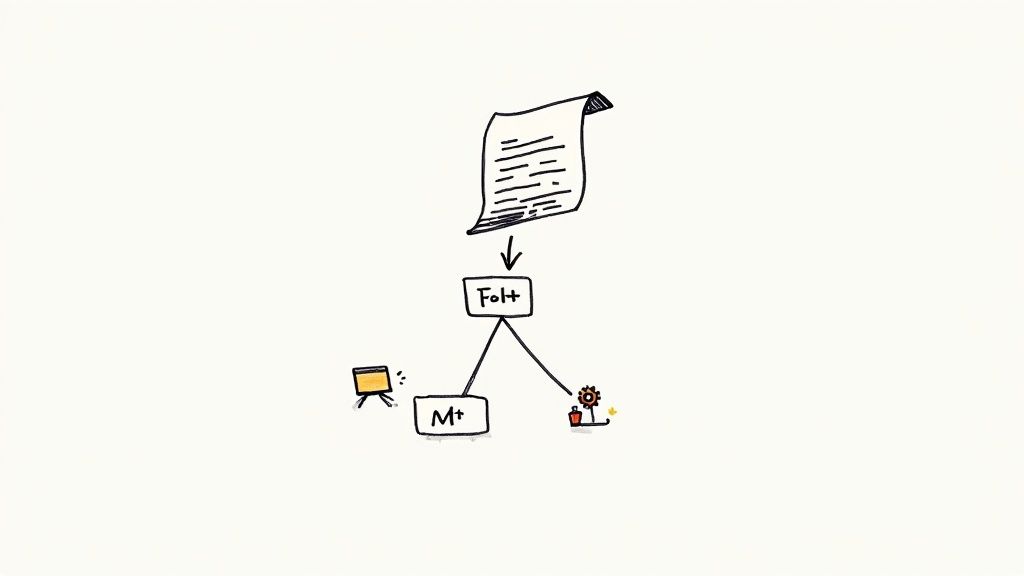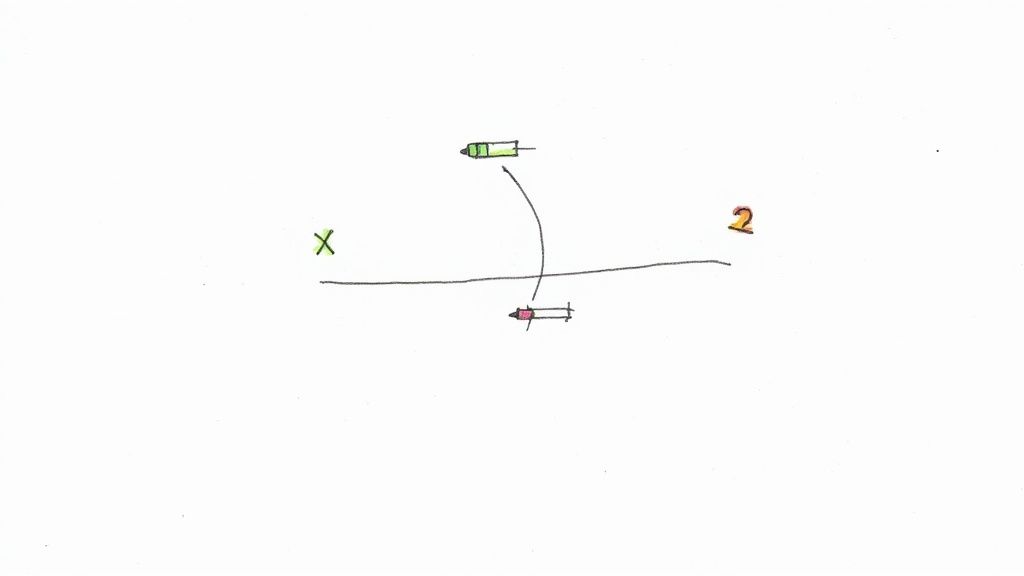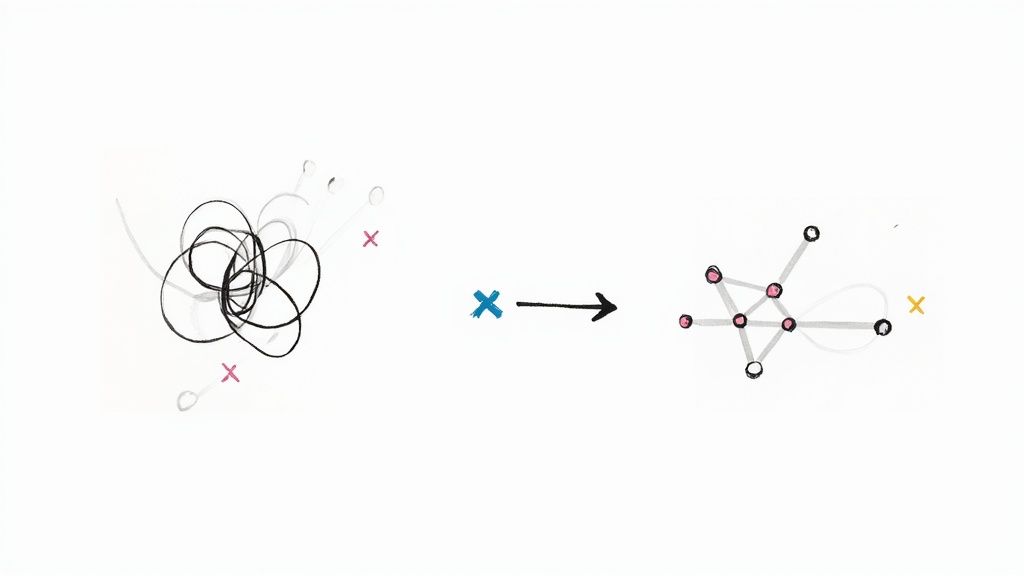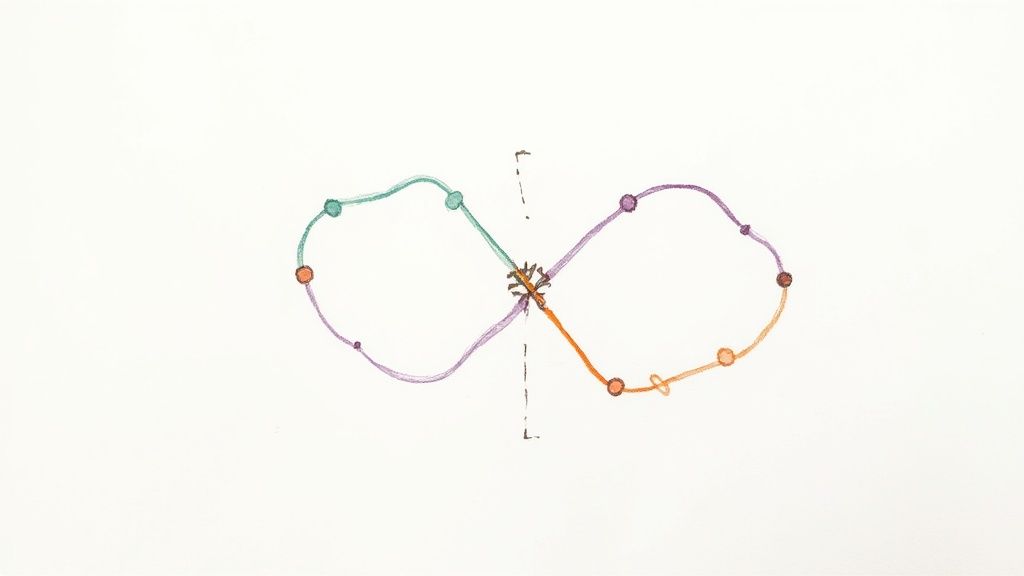Why Deciding Fast Is a Winning Strategy

If you're a video gamer and think you're not up to the task of launching a startup, think twice. At Mergify, we've been heavy video game players for the last couple of decades, and we think differently.
Here's one thing we learned playing video games.
What's a Champion?
Depending on the type of games you play, there might be multiple valid answers to this. However, we are mostly used to first-person shooters (FPS) here at Mergify, and good players all have the same qualities.
I'm sure you would think that the number #1 quality is aiming and targeting your enemies properly. It is a condition for sure, and the best players out there have fantastic accuracy. However, it's not what makes them great players.
FPS games are much more than point-and-click games. We are long-time players of Counter-Strike and Apex Legends, where the best squads are judged on their strategies and the decisions they make all along during a match.

Every time the opposing teams make a new move, you need to adapt. Every time the circumstances change, you need to readjust. Are you in a fight and got engaged by a different squad? You need to reposition not to get flanked.
Now, there are multiple options to reposition yourselves across the map, and some might be better than others.
Most beginning players think that the quality of their decision at that moment in the competition will be the deciding factor that will make them win or lose the entire match.
I'm sorry to disappoint: the deciding factor at sub-top levels is often speed, not quality.
Back to the drawing board: right decision vs. fast decisions
It's fair to start with the assumption that whatever you're starting to do in life, you might be bad at it. Being your first FPS game or a new venture, most of your decisions will be wrong.
You start dumb.
Now, let's assume you're are particularly bad for your first plays and that your decisions are the rights ones in 10% of the cases. Another player might be better than you and get the right move in 30% of the cases.
So, who's going to win on average?
At first, if you look at the chart below, this is not obvious.
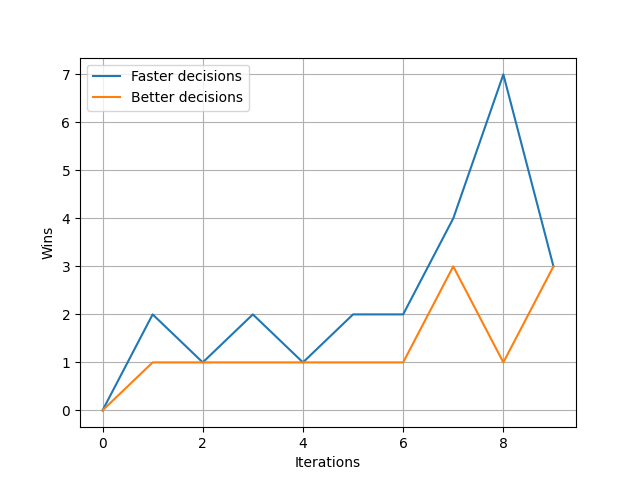
So what's the other criteria that needs to be considered?
Velocity.
It all depends on your deciding speed. If you're stupid but can decide in less than 1 second, you can take ten decisions in 10 seconds and at least get one right on average. Which means it'll only take you 10 seconds to get one right move.
On the other hand, a player who makes better decisions with a 30% win ratio but needs 4 seconds to make them will need more than 13 seconds before making a correct decision.
import random
>>> random.choices(["good", "bad"], weights=[3, 7], k=1)
['bad']
>>> random.choices(["good", "bad"], weights=[1, 9], k=4)
['bad', 'bad', 'bad', 'good']If you look at the result after 1000 decisions, it's clear that deciding fast is the way to go if your good decision rate is not great.
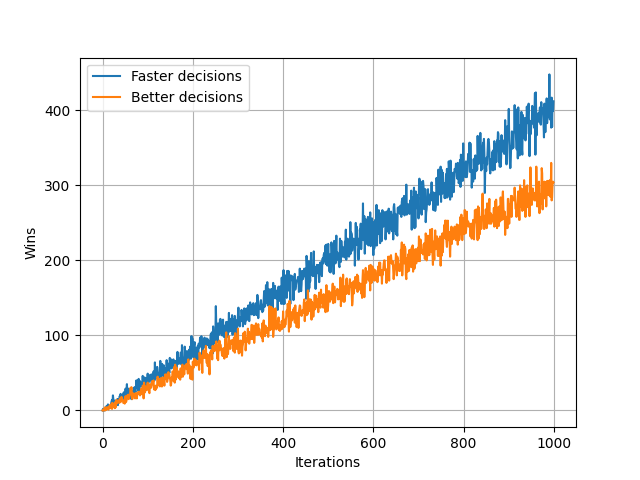
Deciding fast is exactly how dumb players can outweigh smarter adversaries.
The best part of this strategy is that nobody stays foolish forever. By making more and more decisions and failing quite often, you'll learn even more. The more you play, the more good decisions you will make, increasing your win rate without decreasing your decision speed.
Practicing fast-paced decision-making is how exactly pro-players and the best teams get the deciding advantage over their counterparts. They keep their decision time extremely low while increasing their good decision ratio by training and getting more experience.
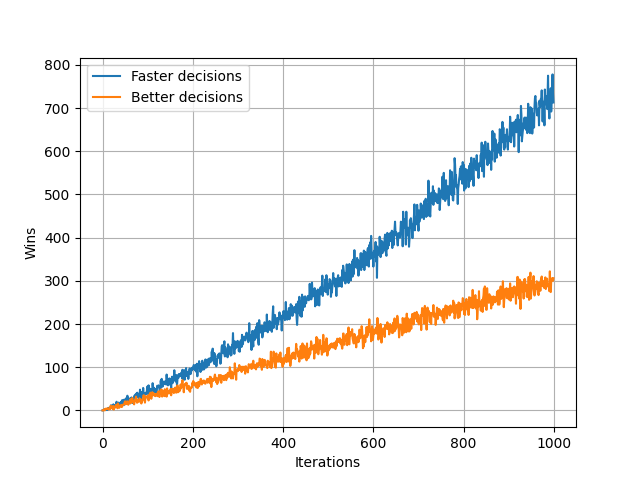
Therefore, the best strategy to improve yourself at the game is to stop looting for the best weapon out there: choose one quickly, and pick a fight.
What's in it for startups?
When starting a new adventure, such as a startup, it is more than likely to make bad calls. There are multiple good reasons for this: the absence of information, the lack of experience, the high number of constraints, the pressure, etc.
Your competitors might be in a better place and have better knowledge than you because they started earlier or have some unfair advantage.
Here again, it does not matter as long as you can decide quickly. What kills many startups and (FPS players) is slowness and inertia. This is where your startup can shine compared to bigger businesses, which are puffed up with sluggishness.
Take responsibility and understand that mistakes are a part of the process. What matters is to keep iterating fast and improve along the way.
There are even other advantages of moving fast. As Sarah Austin wrote in The Need for Speed: How Fast Decision-Making Reduces Risk and Creates Growth: "Swift business restores a solopreneur's mental health whereas delays undermine his sanity. Speed removes self-doubt and restores confidence."
So stop procrastinating your decision and make the call today.

